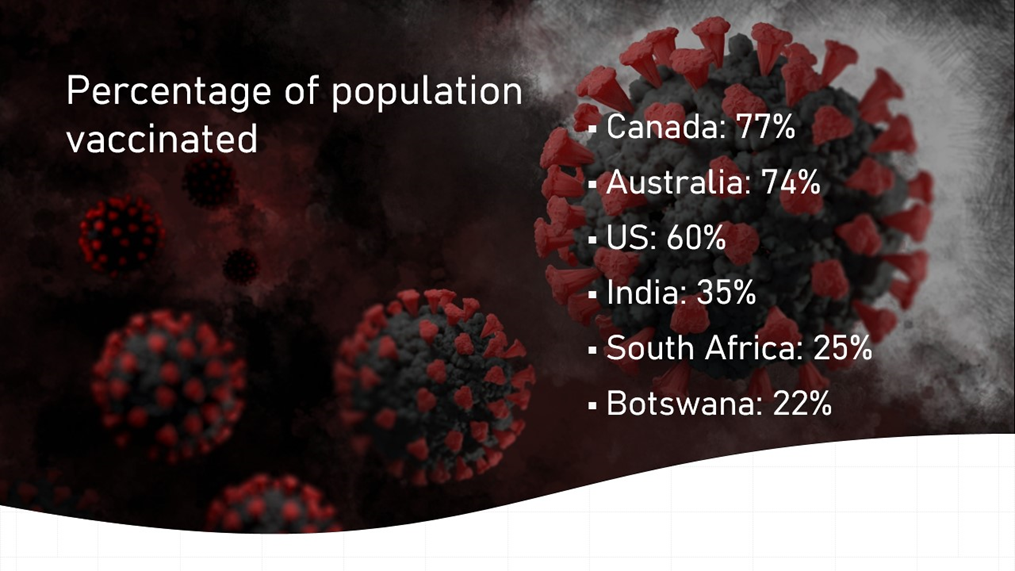Highlights
- The SARS CoV-2 virus has shown it has an ability to mutate in unvaccinated people
- The two biggest stumbling blocks to world economies in 2021 have been Delta and Omicron
- Developed countries could end up spending 49 per cent of the world’s Covid costs in 2021 despite being highly-vaccinated
The world was filled with hope and excitement for 2021. We would be able to see our near and dear again, go out to restaurants, resume our businesses and everything else we took for granted before Covid hit. And, in some part, we did get to do some of that. However, the Delta and Omicron variants stole some of that too.
In March 2020, ex-president Donald Trump, arguably, didn’t allow for the global effort to vaccinate to start off on its best foot as he sought to offer massive sums of money for exclusive access to vaccines for the US. Today developed countries top the list for vaccination rates and there is a clear inequitable distribution compared to the rates of developing economies.
This was never going to bode well for developed countries either. The virus has zero regard for man-made borders.
The SARS CoV-2 virus has shown it has an uncanny ability to mutate in unvaccinated people and that increases the chances of a variant coming up that is more vaccine-resistant. The two biggest stumbling blocks to the economies of the world in 2021 have been Delta and Omicron, who showed that all it takes is a couple of weeks to take root on every continent (except Antarctica).
Delta was first identified in India, a newly industrialized country that has administered the second most number of vaccinations behind China. It’s administered about two and a half more times the doses the US has. However, the US’s vaccination rate stands at 60 per cent of the population and India’s at 35 per cent.
Omicron was first registered in South Africa and neighboring Botswana with vaccination rates of 25.2 per cent and 21.6 per cent of the population, respectively. Most European countries have vaccination rates higher than 65 per cent while Canada and Australia stand at 77 per cent and 74 per cent respectively.
It was never a question of if the two said culprits would spread to developed countries, only when. The two also showed new variants can be as devastating to highly-vaccinated countries as they are to lesser-vaccinated ones.
Also read: 3 vaccine stocks to buy as omicron rises

Image source: © 2021 Kalkine Media®
Viewpoint:
The arrivals of both variants caused stocks markets to take biting hits. The Delta variant exasperated the supply chain crisis and a study quantified the “drag” experienced in advanced economies due to lower-vaccinated countries. An advanced economy may bear the brunt of somewhere between US$ 0.2 trillion to US$ 2.6 trillion, depending on its trade links, said the study.
It also said developed countries could end up spending 49 per cent of the world’s Covid costs in 2021 despite a majority of the population being vaccinated. It concluded that equitable distribution of the vaccine among countries is “not an act of charity” rather one of “economic rationality” for advanced nations. With the virus now turning two, perhaps it's time we reconsider vaccine hoarding.
Also read: Canada snap election: Parties take opposite sides on vaccine mandate



